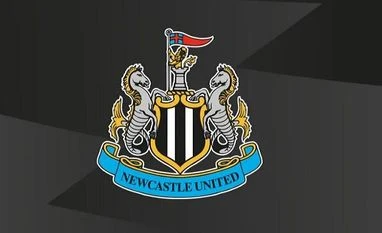Early this month, the long-running saga of the Newcastle United Football Club takeover was completed. The much-reviled owner, Mike Ashley, took a curtain call and a consortium, in which the ruling Saudi Arabia establishment is a prominent element, bought the club.
Newcastle United lost their first match under new ownership, while still being managed by Steve Bruce, also deeply unpopular with the Geordie faithful. Bruce has been sacked following a 2-3 loss away to Tottenham Hotspur. The hunt for a manager who will fit the profile of what is now the world’s richest club, with assets of £250 billion, is gathering pace.
The backstory is crucial. The takeover of Newcastle United was initiated towards the end of the 2019-2020 season. In April 2020, a deal was agreed between Ashley and a consortium, with the Public Investment Fund (PIF), Saudi Arabia’s sovereign wealth fund, providing 80 per cent of the funds. The deal fell through because of PIF’s links with Crown Prince Mohammad bin Salman, who is listed as its chair.
An outcry arose in the UK and the Premier League management took a hostile position, principally over the human rights record of the Saudi regime. Incidentally, this was just over a year after the murder by Saudi state actors of journalist Jamal Khashoggi, which is widely believed to have been sanctioned by bin Salman himself. The belief was bolstered by a Central Intelligence Agency report nailing him.
For all practical purposes, the consortium then failed what the Premiership calls the owners’ and directors’ test. With the test now apparently having been passed, Newcastle United is in new hands and sitting on a huge war chest. One of the somewhat hilarious conditions imposed is that the Saudi state will have no role in running the club. An official statement said: “The Premier League has now received legally binding assurances that the Kingdom of Saudi Arabia will not control Newcastle United Football Club.” Technically, the PIF is not a Saudi state entity.
Notwithstanding any assurance, there was a swift blowback. On October 18, Premiership clubs voted at an emergency meeting to prevent the Saudi owners from striking lucrative sponsorship deals. Manchester City abstained, while all the 18 other clubs, save Newcastle United, voted in favour of the change of rule. Newcastle representatives said that the amendment, which brings under its purview pre-existing commercial arrangements, is anti-competitive.
Manchester City likely abstained because the club is similarly owned by the Abu Dhabi ruling family and has commercial deals with a variety of entities, the most important of which is Etihad Airways, the Abu Dhabi government-owned carrier. It is believed City’s abstention was on the basis of legal advice to the effect that the amendment was not good in law.
There can be little doubt that huge question marks loom over Saudi Arabia’s human rights record as well as its role in West Asian affairs, especially the relentless destruction of Yemen. But should that really cut any ice when it comes to makingjudgements about who should or should not be allowed to buy English, or, more generally, European football clubs?
Take Manchester City, which has reached the pinnacles of world football— though it is yet to win the Champions League — since its takeover, in effect, by the Abu Dhabi ruling family in 2008. Abu Dhabi might not have the kind of profile Saudi Arabia has, but the tiny emirate, too, has been indicted by various global groups as being repressive and authoritarian, though no specific case of human rights violations has been instanced. Very few questions had been raised at the time of the takeover.
The takeover of Paris Saint-Germain (PSG) in 2011 by the rulers of Qatar, too, raised few eyebrows, though it was the injection of finance that followed propelled PSG into the elite stratum of European football. Only recently have people inside football establishments and outside raised questions about the character of the Qatari regime, in the context of its hosting of the next World Cup in 2022.
In other words, scapegoating Newcastle has a lot to do with double standards and the fear that the takeover will transform the club, enabling it to challenge at the top level of English and European football. Perhaps the scope of the Premiership’s “fitness” test could be amplified to scrutinise the manner in which moneybags with no interest in the clubs they buy run them, the role of broadcasting companies in football generally and the demonstrably unhealthy association of betting companies with the game.
But for global fans, it could be a case of being careful about what one wishes for. Without commercialisation and the stranglehold of broadcast companies, we wouldn’t be looking forward to an incredibly rich menu of European football on most weekends.
Unlock 30+ premium stories daily hand-picked by our editors, across devices on browser and app.
Pick your 5 favourite companies, get a daily email with all news updates on them.
Full access to our intuitive epaper - clip, save, share articles from any device; newspaper archives from 2006.
Preferential invites to Business Standard events.
Curated newsletters on markets, personal finance, policy & politics, start-ups, technology, and more.
)